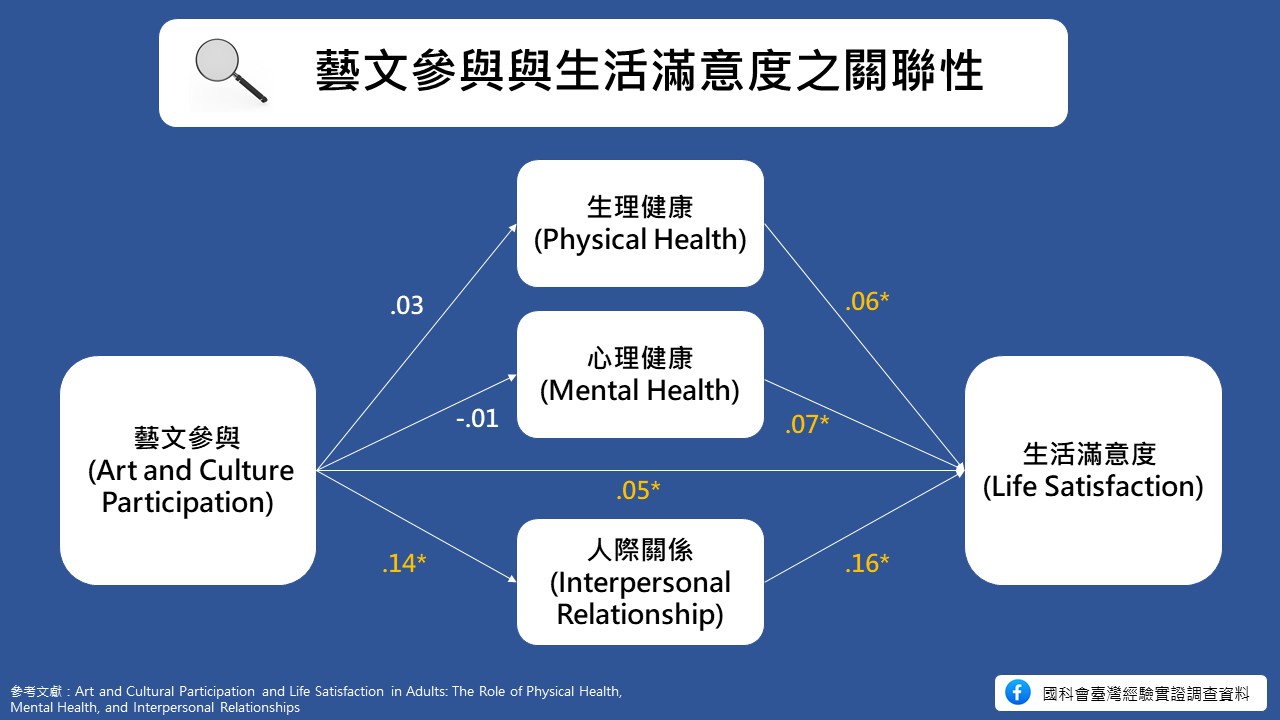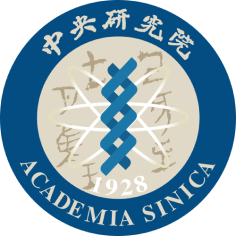The Impact of Arts and Cultural Participation on Life Satisfaction: A Mediating Analysis of Physical Health, Mental Well-Being, and Interpersonal Relationships
In recent years, Taiwan has seen an ongoing wave of concert fever, with major venues across the country hosting back-to-back performances. Just last weekend (June 7–8), JJ Lin held his concert at the Taipei Dome, while BLACKPINK is set to bring their world tour to the Kaohsiung Dome this October. Whether local or international, artists are increasingly choosing Taiwan as a stop on their tour schedules—highlighting both the passion of Taiwanese fans and the market’s growing potential. But beyond the immediate excitement and entertainment of concerts and music festivals, one might ask: Can participating in such cultural events actually improve our life satisfaction? 🤔
Professor Hung Huang-Chia from National Taitung University and his research team explored this question using data from the Taiwan Social Change Survey (TSCS). Their study examined the impact of arts and cultural participation on life satisfaction, focusing in particular on potential mediating factors such as physical and mental health, and interpersonal relationships. The key findings were:
📌 Arts and cultural participation showed no significant association with physical or mental health;
📌 However, it did have a direct impact—or an indirect impact via improved interpersonal relationships—on life satisfaction;
📌 These effects were especially pronounced among women and older adults.
These results suggest that attending cultural events may not only be about the performances themselves, but also about socializing, bonding with friends and family, and fostering meaningful connections. Strengthened interpersonal relationships, in turn, may contribute to greater happiness and overall well-being. That said, correlation is not causation—it’s also possible that people who already feel more satisfied with their lives are more likely to engage in cultural activities. Clarifying these causal pathways will require further longitudinal and experimental research.

That said, it’s worth asking: under post-materialist values, how are income, age, and participation in arts and culture actually related? For those interested in exploring these kinds of questions, the latest wave of the Taiwan Social Change Survey (TSCS) provides an excellent resource for deeper analysis. We welcome researchers and students alike to make full use of the dataset to uncover more nuanced insights into cultural participation and societal values.

